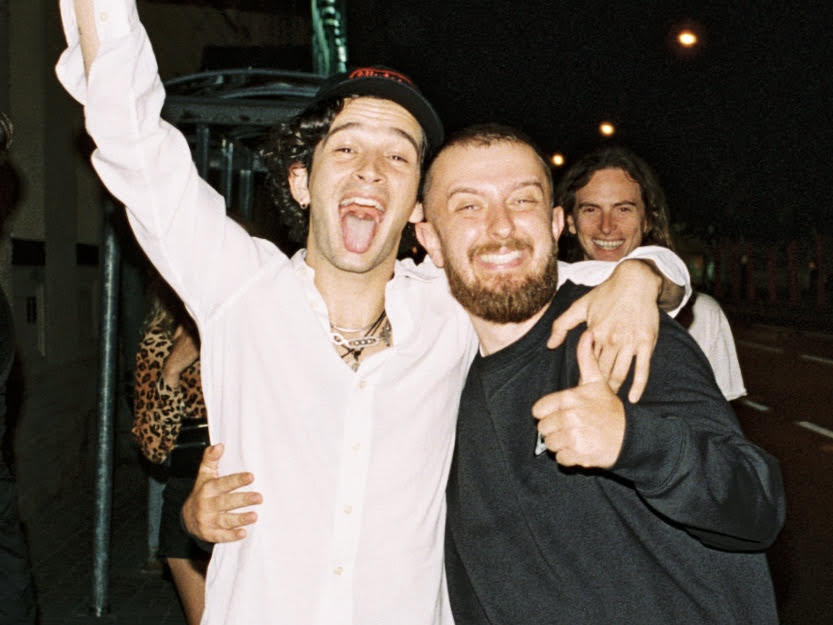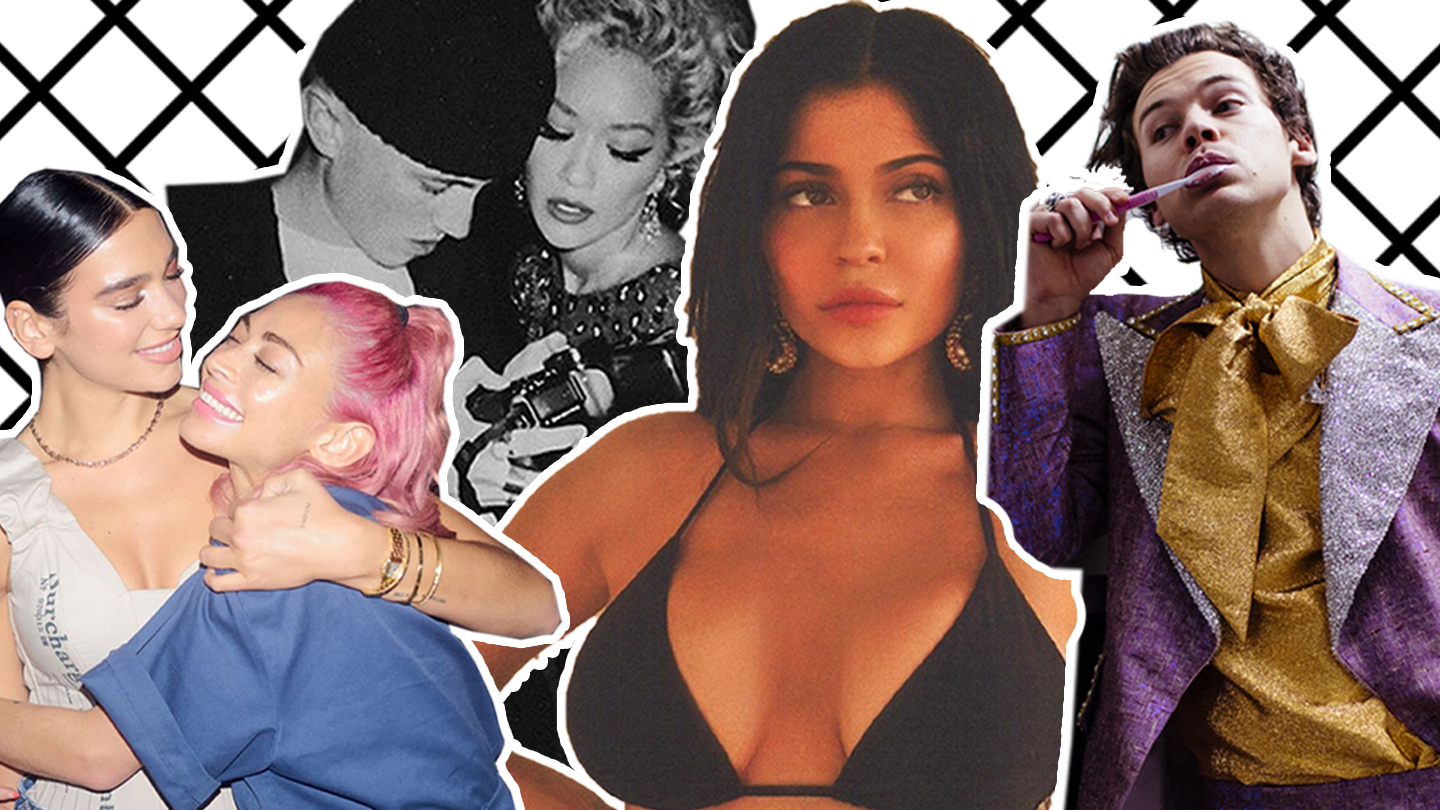Ronan Park was in Japan a couple of days ago, but now, after a near-26 hour journey, he’s back in London. The 21-year-old finds himself jumping time-zones like this quite a lot at the moment: a couple days in Asia here; a few hours in Switzerland there. Then, back home. You see, he’s chasing a pop star with his camera.
As the world’s paparazzi continue to overstep boundaries, prying into the personal lives of the world’s pop elite, there are a handful of people — entrusted by these pop star’s teams — to capture every element of a musician’s life. They’re called personal photographers. Many, like Ronan, are plucked from the pits of concerts and are given the opportunity to go on the road with the world’s biggest musicians, documenting every movement from the inside.
It’s a pop fanatic’s dream job: spending time one-on-one with huge stars that the public fawn over, but it’s not necessarily the easiest line of work to get into. In fact, there’s no real set route that exists that takes you from taking photos of your friends to suddenly having Dua Lipa or Matty Healy in front of your lens.
Of course, one thing is sort of a given: you’ve got to have an interest in live music, or the artist you’re shooting for. For Ronan, who’s been shooting in Glasgow since his early teens, that desire to document came to ahead when he applied for a photo pass at one of Ellie Goulding’s live dates. He was 17 years old. Afterwards, Ellie saw the photos and, as Ronan tells us, “loved what [he] did.”
“Nearly a year went by, then I got a call from her manager randomly while I was still asleep,” he tells i-D. “It woke me up, but it was an unknown number so I ignored it. Then I got a text from her manager asking me to fly to Norway the next day to start shooting the run of shows she had.” If she hadn’t text Ronan to follow up, he could’ve missed out on the job that would lead him to where he is today. “Now,” he says, “I always answer my phone”.
Pixie Levinson’s route to becoming Dua Lipa’s personal photographer was a little different: “Dua was my friend before we started working together,” she says. Pixie’s background is in photography — she studied at London College of Fashion — but she had a burgeoning modelling career which she since decided to take a step back from. “It was the very beginning of [Dua’s] career. I came back to London from living abroad and she didn’t have a photographer at the time, so she asked me to do her first tour. That was three years ago, and we’ve been working together ever since.”
Jordan Hughes, who now spends his life on tour with The 1975, had much the same beginnings as Ronan did. As a teenager, he’d take disposable cameras to punk gigs in his home city of Birmingham, developing a knack for capturing the kind of spirit live musicians want to immortalise. He moved to London to try something new and, at the age of 17, had a contract with music magazine NME. He’s since shot everybody from Taylor Swift to Jeremy Corbyn for their covers. “It grew from there,” he tells i-D, walking through the streets of London on a day off. He’s back in London for a bit before the band headline Reading and Leeds. “I met a lot of people that I know through the industry through NME. For example, the whole The 1975 thing…”
“The whole 1975 thing” has dominated the best part of a year of Jordan’s life. In his early 20s, he met the band’s manager, Jamie Oborne, while working with Wolf Alice. They were reunited in 2018, when he was roped in to shoot stills for the video for The 1975’s ‘It’s Not Living (If It’s Not With You)’. “Long story short, the guys and Jamie loved the photos I took,” he says. “Later, Jamie pulled me aside and asked me if I still toured. I said ‘Not really, but I would for the right band’. He replied saying ‘Are the 1975 the right band?’, and it snowballed from there.” He’s been with them ever since.

In fact, just a few days ago, when the band were in Osaka, there’s a good chance that Jordan and Ronan crossed paths. Matty Healy and the pop star Ronan currently captures, Rita Ora, met each other backstage at the same music festival. Ronan has been with her since July, when he “had a call from Rita’s manager while on the train from Glasgow back to London. The next day I was in Geneva photographing her for an event, and I’ve been working with her closely ever since.”
There’s a stark difference between The 1975’s pop universe and Rita’s. Ronan’s job comes with the added responsibility of stripping back a flawless entity that the world sees solely on red carpets and in music videos; Matty Healy has a history of being on stage in all of his greased-up glory. Ronan has the rare chance to showcase the human being that lies beneath the glamour; it’s those shots that tend to resonate with Rita’s fans the most. “I think their fans can relate to the candid work most as it’s usually very loose, and you can tell there hasn’t been much work done behind the scenes,” he says, pointing out these photos as some of his favourites.
Is he a fly on the wall for most of these moments? “Sometimes it’ll just be me and them in a room, then sometimes, when there are loads of people around I might’ve not even spoken to them since I’ve already started taking photos.”
“I’m in a very privileged position where the boys are so trusting of me that they give me room to do whatever I like,” Jordan says of his own deal with The 1975, “under the notion that I know when to step away. I have the emotional maturity to know when someone’s an interesting moment, or personal and doesn’t need to be documented.” He was there to see the band’s headline-making show in Dubai in which Matty kissed a male fan on-stage, a middle finger to the homophobic establishment, and for their conversations with Greta Thunberg. “The general rule is ‘Document everything’. I’m with them on nights out. I’m in the hotels. I travel with them – I’m not on a separate bus or plane.”
Pixie says it’s important to “just have common sense” in those situations. “It’s all about feeling situations, trusting your intuition, and being aware of the people around you.” She’s comfortable in that place now; she sees those she tours with, Dua and her crew, like family. It’s important to have a rock like that on the road. “I spend more time with Dua and the band than I do any boyfriend or friend I’ve ever had,” she says. “You sacrifice time with your family and friends, because you’re away a lot.” Much later down the line, Pixie sees herself focusing solely on studio and fashion photography rather than the tour life. Her experience with Dua, though, has clearly been very special. “I’d never say that I’d never do for anyone else,” she admits, backtracking: “but actually, I probably wouldn’t.”
The vast majority of those working in the tour photography right now are men; the scene shaped by the ubiquitous burly boys who make themselves seen in the pit. If there was anything Pixie could change about the world she’s in right now, it would be that stereotype being shifted. “What I’ve noticed is that it’s still way too male-dominated,” she affirms. “It can be pretty intimidating as a woman to be constantly surrounded by a lot of quite big men, so I want women to have the confidence to be there as well.”
After all, it’s the kind of job that anybody with the ability to capture live music can — and should — jump into, without worrying about what their peers might look like. Once you’re in it, these photographers explain, the buzz is so alluring that it can be hard to picture life without it. “It’s the most intense thing I’ve done in my life,” Ronan says, with a lick of eagerness and enthusiasm. “You can be sitting in a hotel lobby for three hours and then shoot for five minutes. I need to be completely focussed and not fuck up the only five minutes I have.”
Jordan concurs. “I won’t ever take this for granted,” he says with an audible smile; he knows how lucky he is. “These days, I keep a diary, and take note of things when I feel them. Those feelings that sometimes fade after an hour, I try my best to hold on to them somehow. They — and this whole thing — will always feel pretty magical.”

